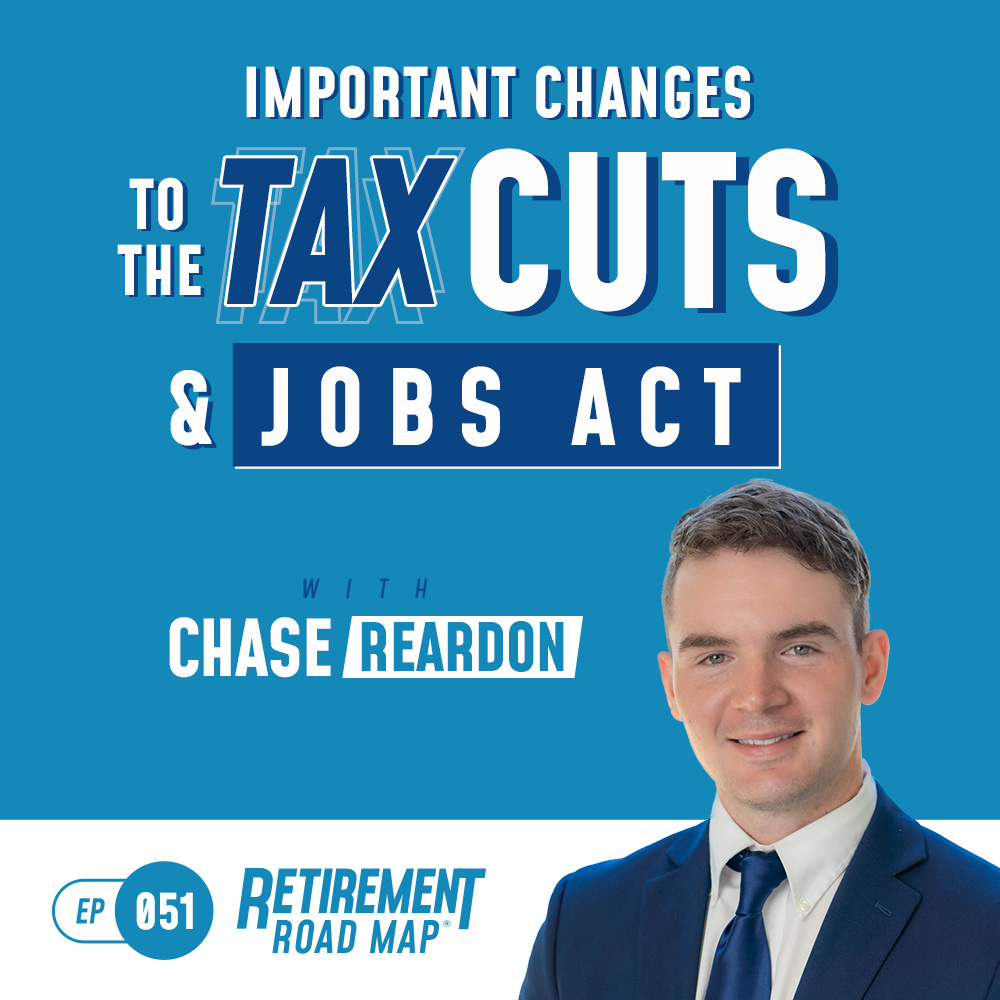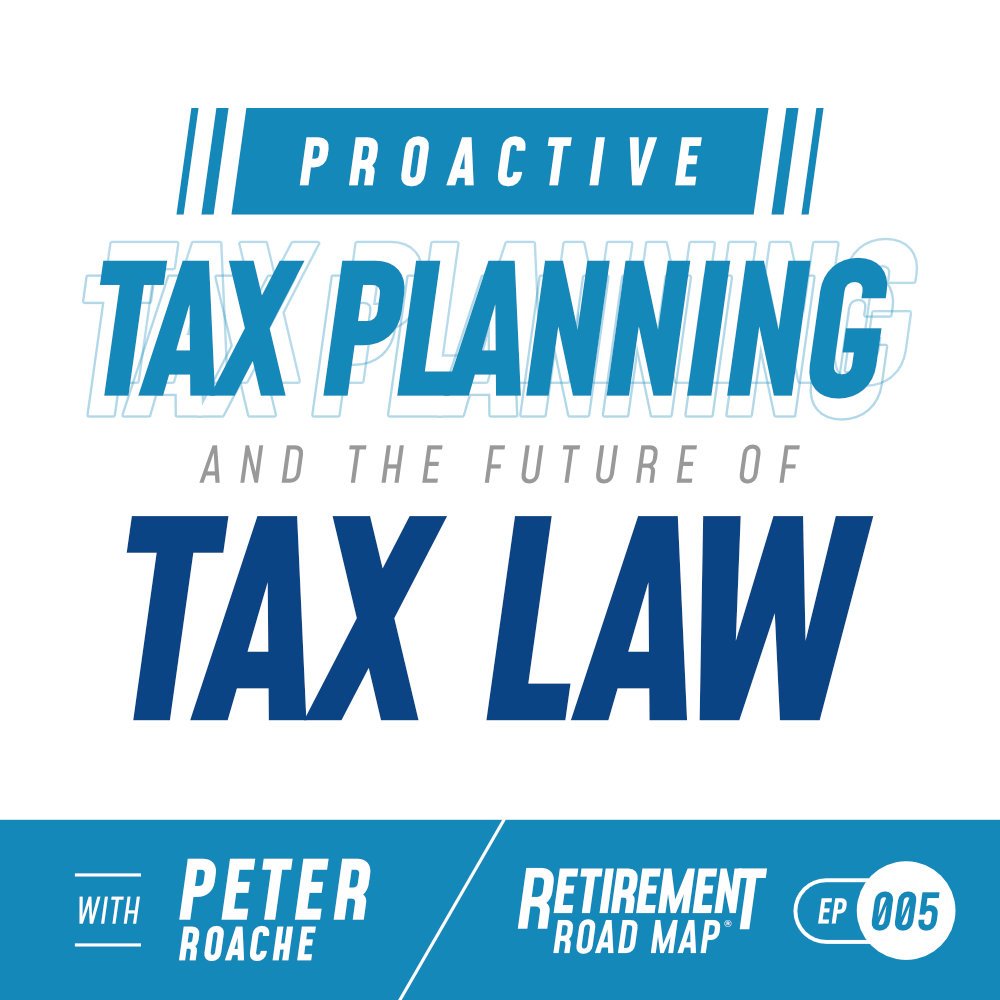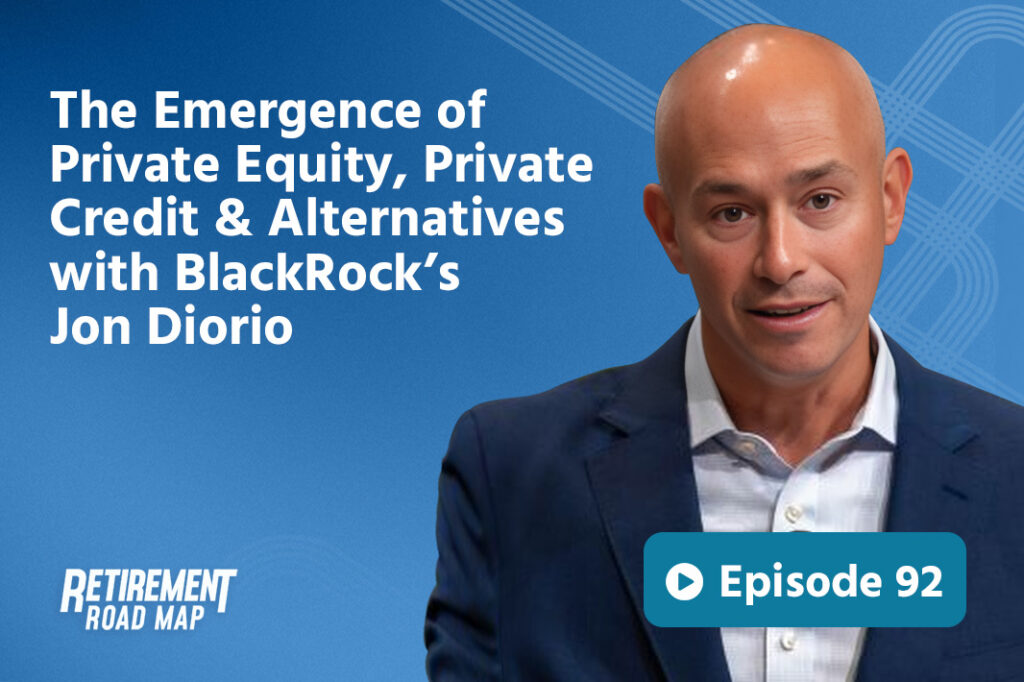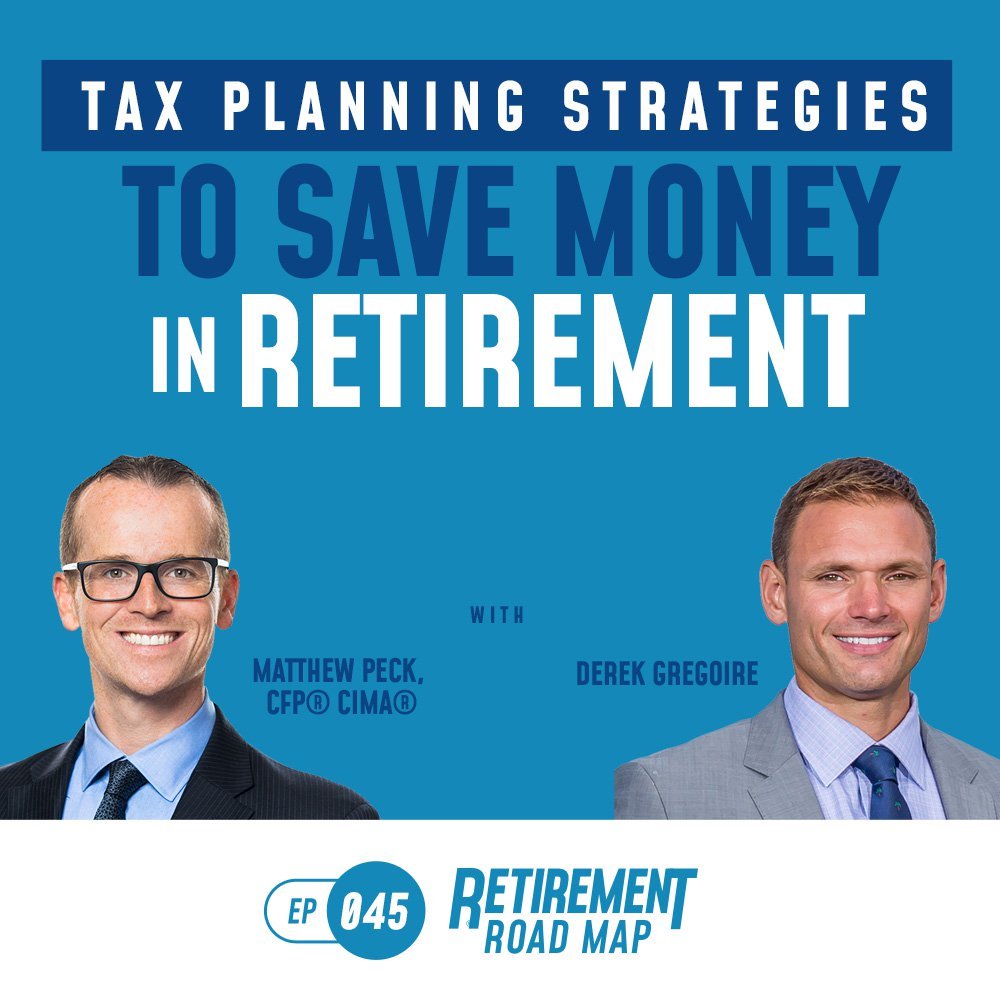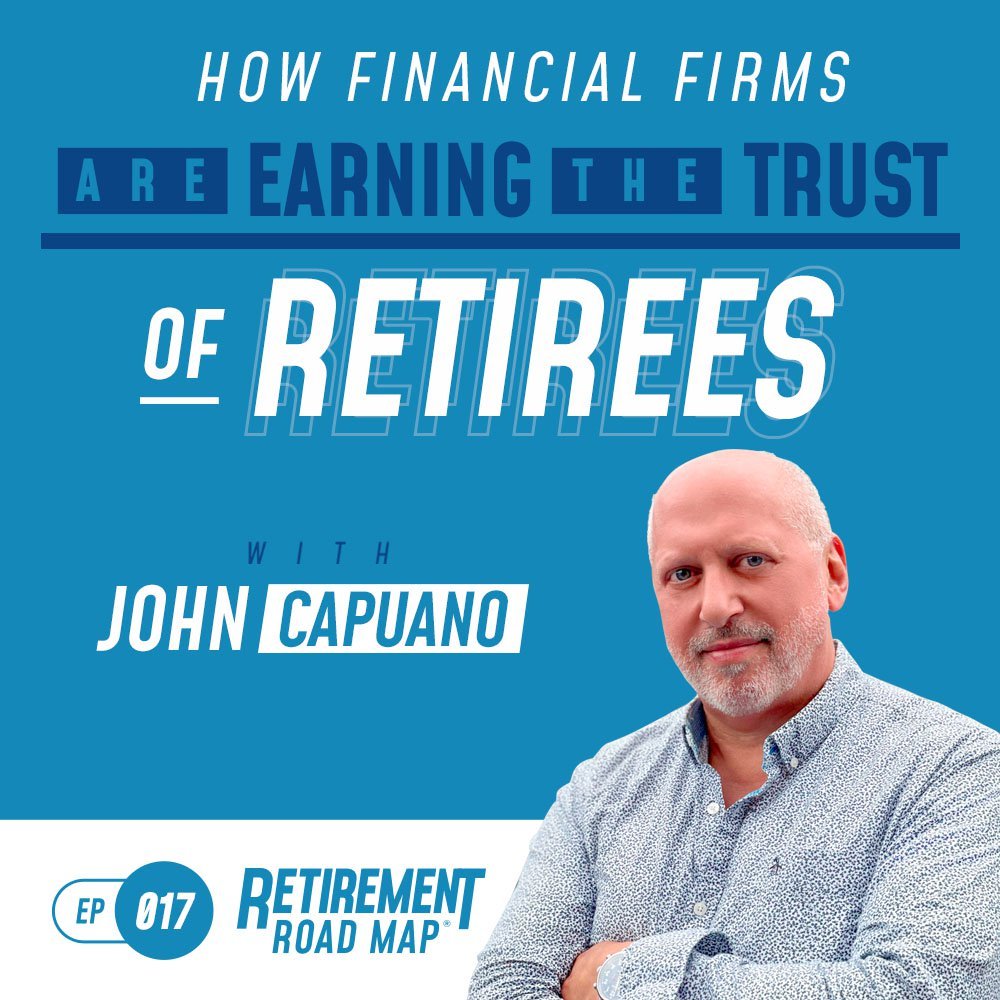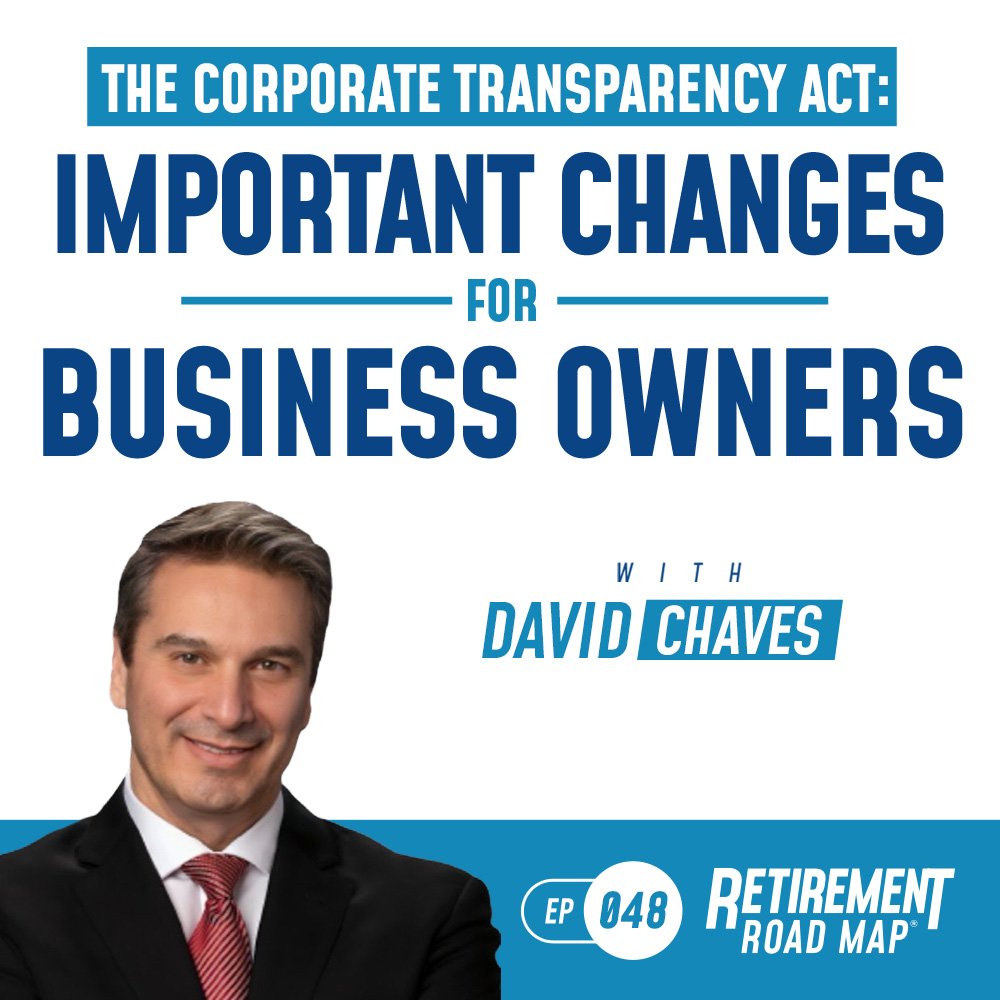It’s a new year, and what better way to kick things off in 2025 than by revisiting your financial plan or creating your first one. We’ve seen huge fluctuations in inflation, interest rates, and market swings in recent years, and having a plan is the best way to be prepared for when things change.
Most people spend their working years grinding, saving, and looking forward to their retirement date. But when the moment actually arrives, many of them wind up feeling unprepared for what they’ll do with all the extra time and financial freedom.
In this episode, SHP Financial’s Matthew Peck and Keith Ellis Jr. dive into the one resolution every retiree (or pre-retiree) needs to make this year: Start asking yourself questions now and paint a picture of your dream retirement. The SHP team is here to help answer those questions and give you the “why” behind our recommendations so you have confidence and know what’s possible in retirement.
In this podcast interview, you’ll learn:
- Why so many retirees struggle with “What’s next?” once they stop working.
- The biggest mistakes people make when transitioning from a paycheck to financial independence.
- How to create a flexible retirement plan that lets you enjoy your money instead of worrying if it’s enough.
- The most overlooked financial factors that determines whether you’re truly free in retirement
- How comprehensive financial planning allows you to dream bigger with confidence.
Inspiring Quotes
- “Memories are more important than gifts because you can take those back. And to be able to create this thing for your families that will live with your kids, your grandkids in perpetuity is priceless.” – Keith Ellis, Jr.
- “Everyone’s situation is different. So, it’s really starting from the ground floor and building a plan all the way from foundation to roof to really acclimate and accomplish each family’s goals and what they set out to do.” – Keith Ellis, Jr.
- “We just want to remind people that time flies. And if you are not taking the time to ask yourself what’s really most important to you and do you have a plan in place to support that, then we’re wasting time, frankly.” – Matthew Peck
[INTERVIEW]
Matthew Peck: Welcome, everyone, to another edition of SHP Financial’s Retirement Road Map podcast. I’ll be your host today, Matthew Peck, joined by my fellow partner after how many years now, Keith, we have?
Keith Ellis, Jr.: It’s 24 now.
Matthew Peck: It’s 24, coming them to it.
Keith Ellis, Jr.: Time flies when you have fun.
Matthew Peck: It sure does. And Evan, that’s why we have this…
Keith Ellis, Jr.: A fact checker.
Matthew Peck: We have a team, yeah, right, exactly. Stop us and let us know what it actually is. And it is great too. It’s been 20 years and yet, we still struggle with doing podcasts and radio and we’re still going to sort of chop our way through this today, but here we are entering 2025. And we wanted to sort of talk about what resolutions could be, what will 2025 look like to you, our listener, and certainly to some of our clients who are either approaching retirements or are already retired?
And then a little bit about how the financial planning can kind of provide the backbone or the structure to then build what someone’s retirement, what they dream it to be and what type of, again, making those resolutions, whether it’s a retirement resolution or whatever that is, having that come true. So, without getting into the topic a little bit more, I mean, certainly Happy New Year.
Keith Ellis, Jr.: Happy New Year to you as well. You have some nice time off with the family?
Matthew Peck: Oh, for sure. But I mean, I was going to ask you, do you feel like it’s all different now, but that now, the fact that it’s 2025 versus 2024?
Keith Ellis, Jr.: The years just fly by. It’s insane. Like, I said to a lot of my family and the folks that I was meeting with, November, December of last year, as funny as that sounds, from September to December just was like a blur. It just flew by. And I feel like that happens each and every year that the back half of the year, like from maybe July, August, all the way through the end, just as a blur. It just goes so quick.
Matthew Peck: And I think, too, we’re all, at least for both of us, as Evan was saying about the years that we’ve been together, but we’re also at the same time, the ages of the kids. And I think, yeah, once September hits, it’s like school and sports.
Keith Ellis, Jr.: Yeah. And I think a lot of our clients have had children and a lot of the people maybe that are listening right now that had children can kind of relate to the way that we feel, how fast that time moves. And before you know it, you blink your eyes and your kids are driving or your kids are going to college or your kids are in high school or whatever it is. And maybe for them, now it’s grandkids or whatever, and it’s like, holy smokes, you know what I mean? And what I love about the season that we just went through, Thanksgiving through the holiday season, it is time to hopefully slow down, take a moment, exhale, be around your loved ones, be around your friends, and really lean in and spend time and embrace those moments because like I said, they come once a year, they go so fast. And before you know it, for me and you, our kids are out the door on their own, it’s like, oh, wow, that just went.
Matthew Peck: No. And I think it’s sort of a good segue into today’s topic, right? Because if people are working as hard or while they were working, I’m sure they were working extremely hard. I’m sure they were extremely busy, not to mention with all their family. And so, years after years of your working life, sort of like nose to the grindstone and then suddenly, you’re 60, you’re 65, whatever age may be because we can see how quickly the time flies. And it’s like, okay, well, then they might come meet us here, whether it’s watching one of our TV programs or the podcast or radio, and we’ll ask people, we’ll say, “Okay, my goodness, nice to meet you. And now, what do you want to do with retirement?” And very often people say, I’m not 100% sure because they didn’t really have time to think about it because, again, it just goes by that fast and you’re just doing what you need to do and then suddenly, as you said you pick your head up and then, now it’s like, then what? What does that next stage look to you?
And I think we wanted to use this new year as to kind of, as I said, give a chance to pause a little bit and make sure all of our listeners are asking themselves that question of what does your retirement dream look like to you? Imagine you have a calendar and you can fill that calendar in any way, shape, or form, how would you fill your days? Because right now, I fill my days with work and local sports and local schools. And that’s just rinse and repeat all the way through. So, I know what I’m going to do for 2025, right? But I guess, Keith, how do you talk to your clients about that? I mean, I know during our first meetings and visits with clients, we’re asking all the standard stuff. But what else do you ask them to kind of get them thinking about what retirement looks like to them?
Keith Ellis, Jr.: Well, it’s interesting because you meet some folks that are so excited to get to this point in their life, whether they’re forced out through work or whether they’ve set that date in the back of their mind that this is when I’m going in, and they’re so excited because that date has come. Then you have the other folks that are so fearful, meaning, what am I going to do? What purpose, for lack of a better way of putting it, because everyone has a purpose, but you know what I mean? Like, they had this purpose that they lived for for 25, 30, 40 years and that is work. And then all of a sudden, that purpose comes to an immediate end. And you’re right, how do you fill that calendar? What do you do?
The best thing that I… the funniest thing that I experience is, someone retires, we help them retire. We get really excited. They get really excited. They leave the office and they take that step. They retire. We meet with them six months later, then maybe a year later, year and a half later, and they’re like so busy, they don’t know how they work. That’s always a great time. That’s always a great thing. And I tell a lot of folks, I said, “Look, it’s going to take a little while to adjust.” But one thing I will say and one of the best things that I’ve experienced, we do this show, kind of that New Year’s resolution or kind of the reflection show every year. And we just challenge folks out there, too, that if you’re thinking about retirement, whether it’s a year, three years, five years, start to think about what you want that to look like, but also, more importantly, put a plan in place.
And why do I say that is, I meet with so many folks that are already retired and they don’t know what’s possible, right? They’re just kind of, I don’t want to say eeking by or getting by, but they’re not living the retirement that they tell me that they want to live when we meet because they don’t have a plan in place. They don’t know what’s possible because they don’t have confidence. To me, having a plan that you can go back that’s updated every single day, so each family that we work with has a plan that’s updated every single day because guess what? The market goes up, the market goes down, distributions are taken, interest is earned, and you want an accurate depiction of what your life is going to look like going forward.
So, to have that plan and revisit that plan and live by or with that plan provides confidence to spend, enjoy, give, whatever it is that you want to do, whatever it is that your goals are, how can you do that? Or how can you live your best life, for lack of a better way of putting it, if you don’t know, if you don’t have a plan, if you don’t see or kind of plan for what’s to come?
Matthew Peck: Right. If you don’t have your financial house in order, because as you’re saying that, all I’m thinking about how, when we ask those questions about what clients want to do in retirement and paint us a picture, right? Is it renting an RV or buying an RV and going across the United States? Is it a hobby in pickleball or golf or whatever that is? We’re asking those questions and sometimes, those questions are hard enough, right? Because imagine that, it’s like I know this is kind of higher-level thinking, but it’s like we only have one shot at this, right? We got one life and we have one retirement. Now, it can come in different shades and faces and we’ll talk a little bit, share some stories of some of how our clients are spending that time.
But it’s one, this is it, right? And so, it’s hard enough to decide what you want to do with that time. Where do you want to invest that time? Is it charity, as you mentioned about giving? Is it church? Is it family? Is it travel? I mean, those questions are hard enough. Now, imagine adding on to all of those questions of what you’re going to do in retirement, then you get to these other levels of, is it affordable? When do I take Social Security? How should my estate plan be managed? How should I be invested? What type of dividends am I earning? Should I do an annuity or not doing an annuity? What about long-term care planning? What do I do there?
I mean, taxes, which I think you mentioned briefly, but I’ll add that in there as well. I mean, although if it’s hard enough to try to figure out what you’re going to do with your time, and then to add on all of these other complexities and difficult decision making, that’s just… I couldn’t even wrap my mind around that. Obviously, we’re here planning. But I couldn’t wrap my mind around having to do both, trying to make those decisions simultaneously. And how much time does that take going through all of that?
Keith Ellis, Jr.: And then the question is, do you want to wrap your mind around all of that? You know what I mean? Like, I have a lot of folks that will come in and say, you know I’m here because I saw you on TV, because I heard you on the radio, because I listen to your podcast, or because our friends told us about you, and I know you guys look at things a little bit differently and you look at what we call our Retirement Road Map, like you said, which is really defining where we’re going to take income from, why we’re going to take income from there. What do you need? What do you need to live on? When are we going to take Social Security?
And I always like to tell people, I like to give them the why. Okay, we’re going to take Social Security here. Well, why are we going to take it there? The why behind why we recommend things. Then you look at investments, tax planning, health care planning, and estate planning all wrapped into one. And to me, it kind of looks at all in every angle of retirement both now and ongoing. And I think that’s super important because, well, obviously, it’s important because laws will change, tax codes will change. Distribution rules might change, whatever it is. Inheritance rules might change.
And yeah, you might be great at buying and selling X, Y, and Z in your portfolio, but maybe you don’t have the other thoughts or don’t want to really verse yourself on those other areas of retirement, so you need a team to surround you and help you out. There’s nothing wrong with that. It’s really what you want to do in retirement, right? Like, do you want to handle it yourself? Some folks do. Some folks love, live and breathe by doing everything there is to know about retirement taxes, investments, whatever it is. And some folks say, “I’ve got this far. I’ve done the hard work, I’ve done the heavy lifting, I’ve done the saving. Now, I want to hire a team to help me get from here to the finish line.” And that’s your personal preference and it’s what you want to do, right?
Matthew Peck: No, absolutely. And I think that’s why we kind of want to use this time to just make sure that people are asking themselves that question because the other thing I was going to mention, kind of tie in all together is the fact that we help or the plan helps and hopefully other financial planners are with the same type of holistic and comprehensive nature. But a comprehensive plan will help in so many different ways, right? It will help with the Social Security decision. It will help with taxes and how to manage in tax loss harvesting and Roth conversions. It will help with distribution and planning on expenses and budgeting and whatnot and obviously, investment management, estate planning, etc. But there are limits to that. I mean, we can help answer questions about affordability, but we can’t say, oh, well, how’s the best way to spend your time, right? Do you want to go to Rome or do you want to go to Disney World, right? Those are the decisions eventually have to be made by the client themselves.
But it’s kind of the point I was making a little bit earlier. But if you’re still fixating on when to take Social Security, you are not going to have the time to then decide or you’re going to have less time deciding, do I want to go to Disney World or do I want to go to Rome? Do I want to do an RV or do I want to go to the Caribbean? Where do I want to move? I think I love that question because of how quickly a grandchild changes the plans.
Keith Ellis, Jr.: Oh, yeah, for sure.
Matthew Peck: Oh, my goodness, I love seeing all the grandmothers out there just immediately will, sort of like priorities shift almost immediately when it comes to when the first grandchild comes. And now, hey, I was thinking about downsizing and moving here, but now that my son or daughter has their baby, I can’t go anywhere at this point in time. And to tie it altogether, having a plan allows you then just to focus on what is really the most important in everything. And what’s most important to you is unique, right?
Keith Ellis, Jr.: Absolutely.
Matthew Peck: I mean, is it travel? Is it family? Is it hobbies? Is it charity? But I love being able to just allow people that time, like we talk about this is the new year, taking the time to reflect. As what you said, Keith, I mean, some people really enjoy the do it yourself versus really enjoy managing it. But obviously, we’re biased. But the thought is, you can outsource that to a good firm like SHP and others, right? And then have that time now to consider because I want people to ask themselves, what’s that question? What truly is important to you? And how do you want to spend the time that you work so hard for?
Keith Ellis, Jr.: And how do you know what’s possible, right?
Matthew Peck: Very true.
Keith Ellis, Jr.: I have folks that will come in and they’ve done an amazing job saving. I can think of a client right off the top of my head, $4.5 million, needs about $100,000 a year of income. I mean, that’s pretty easy with that type of net worth, right? Plus, you add in Social Security, couple small pensions, they’re in what we call great shape, right? But if they only need $100,000, that’s just kind of their expenses, right? So, it’s like, okay, do you want to live just to pay your expenses? So, it’s my job as an advisor, what I try to do is I try to challenge them.
Matthew Peck: You’re right.
Keith Ellis, Jr.: I say, “Listen, are we just trying to get by here?” And I think having a plan shows them what’s possible because that $4 million over time grows to X, right? And you can show them, “Hey, when you’re 90, you’re going to have plenty of money.” And giving them that confidence really allows them to think differently, too. It’s like, okay, I have some kids. Do I want to start gifting to them? I have some grandkids. Do I want to start gifting to them? I have a charity that I like. Do I want to start giving money there? Or do I want to start spending more of my money while I’m healthy? Because there’s two things you’re never going to get back, health and time.
Matthew Peck: Absolutely.
Keith Ellis, Jr.: And that can be taken from you at any moment, either one of them. And it’s our job as advisors to build a plan, build off that plan, show people not only here, you’re going to be okay if you’re going to be okay, but also what’s possible, right? Like, hey, look, you’re only spending $100,000 a year net, what if we spent $130,000 and you had this amazing trip with your family and made all these great memories because guess what? Memories are more important than gifts, in my opinion, because you can take those back, right? And to be able to create this thing for your families that will live with your kids, your grandkids in perpetuity is priceless, in my opinion.
Matthew Peck: No, and just the amount of confidence that that gives you. And so, all right, so now, sort of talk a little bit about, we can give some examples, right, of sort of how the planning and then sort of how it plays out. And then we’ll talk sort of about some of our favorite stories about what clients did decide to do with their time, because I’m thinking of this one individual, there’s one gentleman on the North Shore, when we were doing the plan, he was still working full time at a big company locally and was sort of pressing me constantly because he’s like, “Okay, same idea.” Keith, he was like, okay, well I spend $120,000 a year, but I plan on really traveling. And so, I want to add that, I want to have an itemized out where the minute I retire and let’s say at 65, he was going to spend an additional almost $30,000, then $40,000, then $50,000. He had this full thing all mapped out. It’s like, okay, some years are going to be a smaller trip, other years are going to be a bigger trip, etc.
And slowly but surely, I mean, it took years for him to really dawn on him that this was possible, that this type of… because he kind of wanted just to push it a little bit, like, oh, can I do this? Can I do that? Can I do this? And we kind of ended up putting it into our numbers, showed him what the long-term trajectory was, which was very, very strong because he had a pension, one of the old pensions. He had Social Security and he was able to save roughly about $4 million.
And so, now, he has a beautiful ship, a beautiful sailing boat that he spends about 90 days of the year on. And so, he’ll go to Cuttyhank, he’ll go down to Long Island, he’ll go to the Vineyard, and just sort of spends the summertime on his boat, completely detached. I mean, obviously, he’s got phones and has to go in for supplies and things like that. But he’s literally at, I call it the high seas, but he’s literally sailing for half a year. And then he comes back, takes care of business. That’s usually when I see him. I know when he’s in town. And then he goes west and he just skis all year long. So, he’ll buy one of those epic passes or one of those season passes. And he then will go to all the big Western ski resorts. So, he’s doing Canada this year. Last year, he did the Lake Tahoe area. And he’s away there, and I never even hear from him during the time that he’s away because everything’s been buttoned up.
Now, curveballs come and life throws things different at you. The markets go up, markets go down, and this happens and that happens. It’s not like there’s no concerns, whatsoever, but I take such pride in being able to provide the guidelines and the framework and the plan, right, the income plan, the investment, the tax plan that allows for this complete, carefree living in his retirement and making that part come true. Well, that’s what he always wanted to do. He wanted to be sailing. He wanted to be skiing, right? And I was telling him, like, you’re the coolest guy I know because of the fact that you could embrace it so much without the concern, but it was the planning that really helped get him there, right? So, that’s one of my favorites, but I don’t know about you. I mean, is there one that really stands out to you?
Keith Ellis, Jr.: I think you’re right. And I think the planning is really what, again, provides the confidence to be able to do and live a life like that. You know what I mean? Like, because you could say, look, here’s what we call your base plan, right? Here’s your expenses, here’s what your numbers are going to look like long term. And then you can make an alternative strategy that says, “Hey, look, I’m going to pull in an extra 30, extra 40, extra 50 a year. Just run it side by side, so you can see the impact of your plan.” And then it’s up to the client to live that. You know what I mean? Like, are you really going to do this? We’ve shown you it’s possible, but it’s up to you to actually do it, up to you to actually execute. We can show you, we can build it, you have to execute. And what I mean by execute is live life. You know what I mean? And that’s just what it is, right?
So, I’ve had a few that I really, I guess maybe I’m jealous of and kind of want to do myself. And one of the fun parts of our job, in my opinion, is getting to know people on a deeper level and getting to know people, because you learn, one, from their experiences and you can take notes and say, “Okay, that sounds like…”
Matthew Peck: Yeah, we can live vicariously…
Keith Ellis, Jr.: That sounds like a pretty cool thing. That sounds like a pretty cool thing. And then some, obviously, the mistakes that they’ve made in their past, obviously, you make mental note of that as well because not everyone’s perfect, right? So, couple that come to my mind is my grandparents, my own grandparents, they lived up here in White Cliffs for, what was it, maybe June through September, and then retired in St. Croix for 35 years. They built a home down there in the Caribbean, and that’s what they wanted to do. They traveled the world and decided that’s exactly where they wanted to go after they had traveled the world. And they settled on the island of St. Croix, which is in the US Virgin Islands, built a home there, and retired there. And obviously, they’ve both since passed, unfortunately, but that was to live… to watch them as a kid and even a young adult live that life and the happiness that they had and the excitement to both come home and see us, but both leave and go to paradise, it was pretty cool to see.
And another one that comes to mind is a client that retired, I think, within a month, bought an RV, and a lot of people think, oh, my gosh, I can’t buy an RV when I retire. It’s a huge expense, which it is, right? I mean, it is, but then they mapped it out, traveled the country for about a year, year and a half, different period, different pockets at the time, different paths, came back, sold the RV. So, it really wasn’t… a lot of people think of it as a dead weight. Yeah, it cost money, but you know what I mean? Like, would they ever give back the money? Maybe they bought it for 150, sold it for 100. I mean, would you really give back the $50,000 for all those memories?
Matthew Peck: That you enjoyed, right?
Keith Ellis, Jr.: Absolutely. All that time that you created, one, with your spouse and all the memories you created with that spouse, not to mention all the neat people you probably met and talked to along the way and all the places that you got to see along the way. That to me is an experience that is second to none. So, those are two that really come to mind. And I’m sure there’s a million more, but those are two that really come to my mind.
Matthew Peck: Well, I just love the, especially like the story of your grandparents where it doesn’t have to be stereotypical, right? I think sometimes people fall into the trap of like, well, okay, I guess I’ll golf, right? It’s just like, that’s what everyone does, right? Not everyone, but you get my point. But I think that’s part of the process, especially when it comes to planning processes, is challenge people a little bit, right? Challenge them to, and you were saying a little bit earlier, but it’s like a challenge, like, what is it? Like, forget about money. I want to wave my magic wand. And what is it? And it can be anything, because we can stress test it, like we can do scenario planning to show, okay, whatever it may be. I had a client the other day.
Keith Ellis, Jr.: It’s like choose your own adventure book.
Matthew Peck: Yeah, it really is, because we can at least show you the financial consequences of whether it’s increased spending or whatever that may be or gifting, like you’d mentioned. Or again, the legacy is number one, or is it your lifestyle, number two? Like a fun one that I did for this what if was a client who was about two or three years away from retirement, loves baking. And she was asking us, just saying, “Okay, hey, if I retire, I’d like to increase, well, let me do a what if.” And the increased expenses wasn’t necessarily for travel. It was for like the second business of just almost like maybe finding a small bakery. Again, this one is from the North Shore as well, up on the North Shore, and sort of having a small little business of baking because that’s what makes her happy.
Now, ironically enough, it was funny. We sort of played it out over 20 years to say, “Okay, hey, by the way, it’s affordable.” Now, she said, “Wait, wait, you’re assuming that the bakery doesn’t make any money over 20 years?” I’m like, “Well, yeah, we want to be conservative.”
Keith Ellis, Jr.: Worst-case scenario.
Matthew Peck: Yeah, we want to show a worst-case scenario. And she’s like, “Well, I think after 10 years, if my bakery is not profitable, I probably would stop it.”
Keith Ellis, Jr.: We understand.
Matthew Peck: Yeah, right.
Keith Ellis, Jr.: But worst-case scenario.
Matthew Peck: Yeah, we’re definitely going to show that. But it shows that the, sort of like how much you can play this pretend game, if you will, right, to see what’s possible. And I love asking that question. And I’m hoping everyone uses this time, reflects on these questions because they’re more important. I think you put a great Keith right there which is like, what’s most important? I mean, it’s about that RV example, right? Like, maybe you buy it for 150, and then you sell it.
Keith Ellis, Jr.: For 75, whatever it is.
Matthew Peck: Yeah. So, you say you didn’t get a return on investment, but my goodness.
Keith Ellis, Jr.: Well, yeah, you did. It’s memories. It’s time with your loved one. It’s everything. To me, that’s the best return on investment there is. I hate to say it.
Matthew Peck: Well, no, and it’s true. I mean, that’s kind of my point, the fact of like, it’s those invaluable things, it’s those intangible things that we can show you all the financial consequences of spending this or retiring here or when to take Social Security, etc. But it’s these experiences or it’s the time that it buys you that what you then do at that time, that’s by far the most precious thing while we are healthy, like you mentioned, that can get stolen at any point in time. And I think at the end of the day, we certainly hope, everyone here at SHP Financial, we certainly hope that you do have that well-thought-out plan because we would rather have you planning now. Again, we’re biased. So, if you love stocks, bonds, and mutual funds, you love doing yourself, that’s one thing. But at the end of the day, certainly here at SHP, we would much rather have you planning your cross-country road trip, right? We’d much rather have you planning like, “Oh, hey…”
Keith Ellis, Jr.: Your next vacation.
Matthew Peck: Your next vacation or like, “Oh, I really would love a second home. Let’s take a look at the Caribbean.” “Okay, great.” We would love to kind of have you focus on that, while we focus on the taxes and the changes of the tax law and the ebbs and flows in the market and things along those lines.
So, as we enter 2025, we just wanna remind people that time, like we all know, as we just noticed ourselves, passing 20 years like that in regards to working together, time flies. And if you are not taking the time to ask yourself what’s really most important to you and do you have a plan in place to support that, then we’re wasting time, frankly. And so, we certainly hope that anyone that needs it, they can always reach out to us and pick up the phone. We’re happy to help in any way possible. So, before we wrap, Keith, any final thoughts for people as we enter 2025 and sort of any major takeaways?
Keith Ellis, Jr.: No. Like I said at the beginning of the show, if you’re really thinking about this in the next six months, year, three, five years, it’s just so important to start to really formalize a plan to know, not only can you afford it like we talked about, that’s the number one question we get, can I retire, right? But then also say, “Okay, I have the plan that shows I can retire, but I just don’t want to retire to retire. I want to retire to enjoy.” So, it’s not only to show you the plan, to show you what’s possible, right? Like, okay, we built you the plan. You feel good about it. You feel good that you can retire.
But now let’s look at it and show you, okay, look, what is possible? What can you do today? How can we challenge you as advisors? How can we challenge you as the families we represent, the families we work with to enjoy what you’ve built? Because you spent 30, 35, 40 years accumulating wealth to get to this point, it’s your job to enjoy it now. And whether that’s enjoying it with your family, your loved ones, by yourselves, traveling, gifting, whatever it is, what I love about our job is that there’s not one thing that’s the same. Everyone’s situation is different. So, it’s really starting from the ground floor and building a plan all the way from foundation to roof to really acclimate and accomplish each family’s goals and what they set out to do. So, that would be my challenges, and I really start to think about not only now, but the future and start to put things in place, get your ducks in a row so that when you step out into retirement, you’re stepping out with confidence and the ability to enjoy it.
Matthew Peck: So true, Keith. And just as a reminder, the team is here throughout all of 2024 just to look into last year. We do everything we can to have a full support staff and shipmates here. So, whether it’s investing and the planning technology that we have to kind of run these models or just in the people, the people to help everything that Keith just mentioned, help that process along, and so that you can spend less time worrying and wondering and more time living and dreaming. Thank you again for listening. Be well.
[END]
Certain guides and content for publication were either co-authored or fully provided by third party marketing firms. SHP Financial utilizes third party marketing and public relation firms to assist in securing media appearances, for securing interviews, to provide suggested content for radio, for article placements, and other supporting services.
The content presented is for informational purposes only and is not intended to offer financial, tax, or legal advice, and should not be considered a solicitation for the purchase or sale of any security. Some of the informational content presented was prepared and provided by tMedia, LLC, while other content presented may be from outside sources that are believed to provide accurate information. Regardless of source, no representations or warranties as to the completeness or accuracy of any information presented are implied. tMedia, LLC is not affiliated with the Advisor, Advisor’s RIA, Broker-Dealer, or any state or SEC-registered investment advisory firm. Before making any decisions, you should consult a tax or legal professional to discuss your personal situation. Investment Advisory Services are offered through SHP Wealth Management LLC., an SEC-registered investment advisor. Insurance sales are offered through SHP Financial, LLC. These are separate entities. Some supervised persons of SHP Wealth Management, LLC, are independent licensed insurance agents of SHP Financial, LLC. No statements made shall constitute tax, legal, or accounting advice. You should consult your own legal or tax professional before investing. Both SHP Wealth Management, LLC. and SHP Financial, LLC. will offer clients advice and/or products from each entity. No client is under any obligation to purchase any insurance product.

